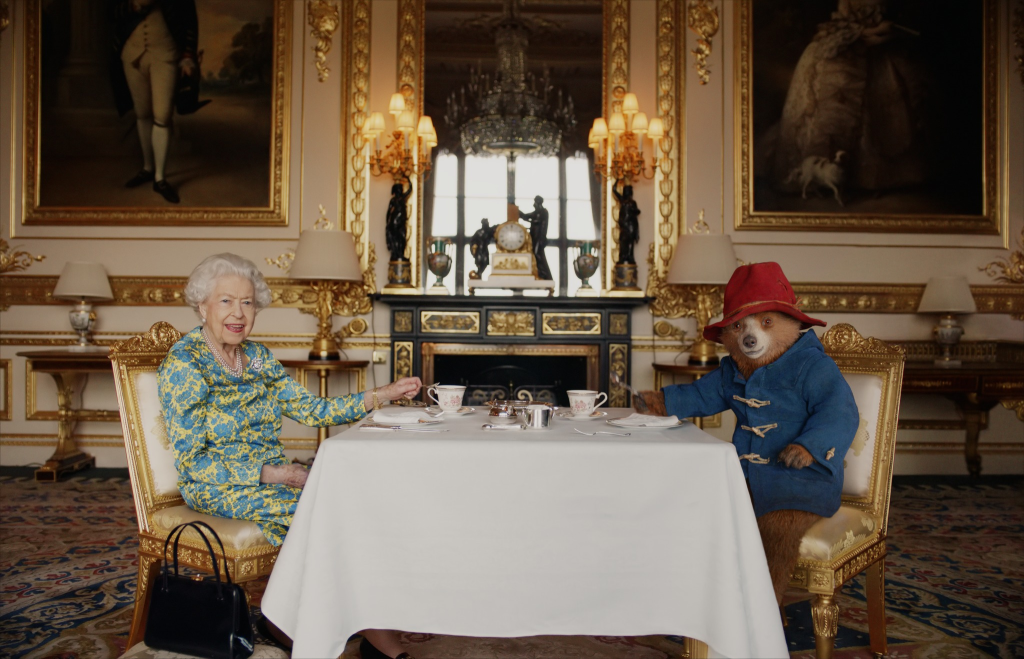Several African leaders have paid tribute to Queen Elizabeth II, the UK’s longest serving monarch, who died at Balmoral aged 96, after reigning for 70 years.

Queen Elizabeth died peacefully on Thursday afternoon (8.09.22)at her Scottish estate, where she had sent much of the summer. She came into power in 1952.
Her son King Charles III said that the death of his beloved mother was a ” moment of great sadness” for him and his family and that her loss would be “deeply felt” around the world.
The Royal Family posted a statement from the king saying, “We mourn profoundly the passing of a cherished Sovereign and much loved mother. I know her loss will be deeply felt throughout the country, the Realms and the Commonwealth, and by countless people around the world.”

What did African leaders have to say about the Queen’s death?
Kenyan president Elect William Ruto: ‘ I have received news of the death of Queen Elizabeth II and I send condolences of the people of the United Kingdom. The queen’s leadership of the Commonwealth for the past seven decades is admirable.”
Rwandan president Paul Kagane added, “In this moment of sorrow at the passing of Her Majesty Queen Elizabeth II, we recall her 70 years of stewardship of the Commonwealth of Nations. The modern Commonwealth is her legacy. I extend my deepest condolences to His Majesty the King, Her Majesty the Queen Consort, and the entire Royal Family, as well as the people of the United Kingdom and the Commonwealth.”
South African president Cyril Ramaphosa: Her Majesty was an extraordinary & world-renowned public figure who lived a remarkable life. Her life & legacy will be fondly remembered by many around the world. The Queen’s commitment & dedication during her 70 years on the throne remains a noble & virtuous example to the world.
In a statement Moussa Faki Mahamat, chairperson of the AU Commission said: “Our deepest condolences to the Royal Family and the people of the United Kingdom and the countries of the Commonwealth on the death of Her Majesty Queen Elizabeth ll.
“Her Majesty Queen Elizabeth II was a towering icon of selfless service to humanity and a key figurehead of not only the United Kingdom and the Commonwealth of Nations where Kenya is a distinguished member but the entire world,” President Kenyatta mourned.
READ ALSO: Prince Phillip, The Duke of Edinburgh, dies aged 99
There are however many people that refuse to mourn the queen saying that the monarch never acknowledged crimes that Britain and the royal family perpetrated across the world.
Economic Freedom Fighters(EFF) issued a statement on the death of the queen saying, ”During her 70-year reign as Queen, she never once acknowledged the atrocities that her family inflicted on native people that Britain invaded across the world, she willingly benefited from the wealth that was attained from the exploitation and murder of millions of people across the world.”
Citizen.co.za wrote that, the British Royal Family stands on the shoulders of millions of slaves who were shipped away from the Continent to serve the interest of racist white capital accumulation.
There was recent an altercation on twitter where American Amazon CEO tried to knock down Nigerian-born US professor Uju ANya for her tweet regarding the health status of the queen. Here’s how it went:
While the queen was under medical supervision at Balmoral Castle in Scotland, Anya, had expressed her wish for the queen to have an ‘excruciating’ death. The tweet has now been removed by Twitter but still generating reactions on the platform.


How Queen Elizabeth became Queen while in Kenya
It was February 1952 and Princess Elizabeth was enjoying a short break in Kenya with Prince Philip, her husband of five years. It was a brief respite from their royal duties.
They were standing in for George VI on a long-planned international tour that was to also take in Australia and New Zealand. The 56-year-old King, thousands of miles away at Sandringham, had been too ill to travel.
The pair were relaxing at a game-viewing lodge, at the now-famous Treetops Hotel just over 100 miles (165km) from Nairobi. Elizabeth had spent the day of 5 February taking cine films of elephants at a nearby watering hole before retiring with the Duke of Edinburgh to their cabin high up in the trees. They spent the night surrounded by wild animals.
And it was here on 6 February, that the princess became Queen after George VI passed away in his sleep.
The British hunter Jim Corbett, who was also staying at Treetops at the time, later wrote the now famous lines in the visitors’ log book:
“For the first time in the history of the world, a young girl climbed into a tree one day a Princess and after having what she described as her most thrilling experience she climbed down from the tree next day a Queen.”
At the time, however, Elizabeth did not know about the event that was to change her life.
Because their location was so remote, the news of the King’s death took some time to reach the royal party. It came first to a senior courtier, who passed it to the princess’s private secretary, Martin Charteris, who then telephoned Prince Philip’s aide.
Elizabeth had returned to Sagana Lodge, a farm some 20 miles (32km) away that had been given to her by the Kenyan government as a wedding present when Philip eventually broke the news to her.
After what would undoubtedly have been an emotional walk on the grounds with her husband, the 25-year-old who had become Queen Put aside her grief to write letters apologizing for cancelling the rest of her tour. Arrangements were made for her to return home immediately.
She stayed a night at the Kericho Tea Hotel after a tour of the tea ranches there before heading northwards to Nyeri and Lewa Downs.
